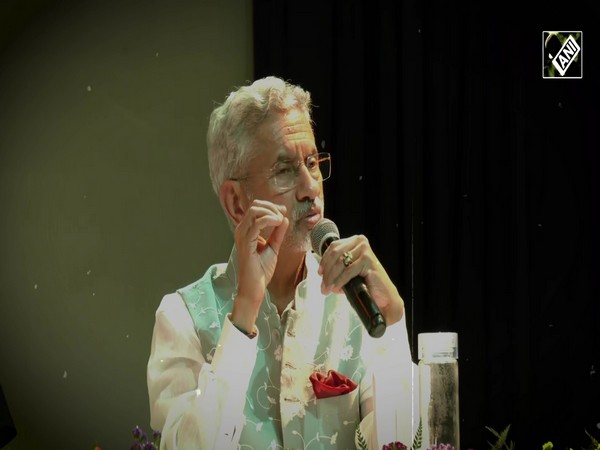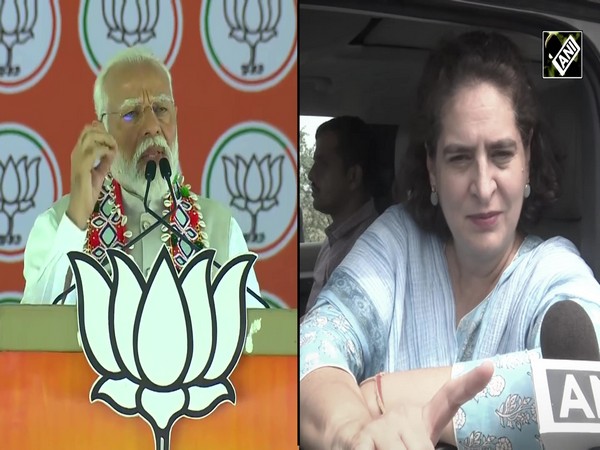Law Committee of the GST Council suggests measures to tackle fake invoices
Nov 22, 2020

By Shailesh Yadav
New Delhi [India], November 22 : The Law Committee of the GST Council after its intense deliberations on the issues of GST fake invoice frauds, spread over two days, has suggested two-pronged manifold measures that would warrant on one hand to tackle the menace of fake invoices and ineligible availing and passing on of input tax credit (ITC) by unscrupulous fraudsters, and on the other, would ensure not to impact the Ease of Doing Business provided by the GST's liberal registration and refund regime, and simple self-compliance system with little checks, said the sources in the Department of Revenue (DoR).
Sources said that the urgent need to work out certain modifications in GST rules is evident from the fact that within ten days of a nationwide drive against the GST fake invoice frauds, the Directorate General of GST Intelligence (DGGI) and Central Goods and Service Tax (CGST) Commissionerates have so far arrested 48 persons including one woman and three chartered accountants and have booked 648 cases besides identifying 2385 entities.
According to the sources, the Law Committee while suggesting systemic tightening, some modification in the registration process, use of Aadhaar and Aadhaar like registration modus opus, faced the biggest challenge to dig solutions which would not be impacting Ease of Doing Business, although, would effectively control the menace of fake firms and fly-by-night operators.
The Law Committee has come out with the measures which are taken on precise identification of potentially riskier taxpayers based on very well defined parameters run on the automated environment, thus, would not be impacting Ease of Doing Business for genuine taxpayers, businesses entities and traders.
Sources said that the Law Committee of GST Council has suggested a two-pronged strategy- one, for the fresh or new registration applicants and the other for weeding out of existing fake dealers from the systems. Law Committee has also suggested discussing these measures with states and other stakeholders before putting it formally to GST Council for further necessary action.
Sources said that the Law Committee in its considered view has suggested that new or fresh registration in GST may adopt the Aadhaar like registration process under which new registration can be done online with live photos and the use of biometrics with due verification of documents.
Such facilities can be provided at banks, post offices, and GST Seva Kendras (GSKs) just like Passport Seva Kendras or Aadhaar Seva Kendras. The GSKs can work on the pattern of Passport Seva Kendras to provide new registration facilities with required checks on fake registration.
According to sources, the Law Committee has suggested that a fresh registrant must go for compulsory physical verification and personal identification in case s/he opts for non-Aadhaar authentication based registration process and do not have income-tax return supported adequate financial capability. In such a case, s/he may have to submit a recommendation letter by two taxpayers of adequate reliability.
Further, if on the basis of document supported credentials, a registrant/dealer falls in the 'trustworthy' category then s/he can be given registration within seven working days; if s/he is not in the 'trustworthy' category then conditional registration shall be given within 60 working days only after physical verification of the place of business wherein in such cases input tax credit to their buyers shall be allowed only after filing of their return and the dealer/s would be required to pay a certain portion of their liability in cash instead of paying 100 per cent tax through ITC.
As per suggestions of the Law Committee, the dealer may also be required to deposit a portion of their due taxes through cash or via a bank guarantee of up to 2 per cent of their tax dues, instead of being allowed for 100 per cent tax payment through ITC.
They have to have some convincing income tax footprint available to establish their financial credibility to avail ITC based payment. For example, a dealer, say of, Rs.100 crore business needs to pay on an average a tax of Rs. 18 crore then s/he may be required to pay a sum of Rs. 3.6 lakh through bank guarantee instead of 100 per cent payment through ITC.
According to sources, Law Committee is of the view that to be categorized under the 'trustworthy' category, a registrant/dealer must have good income tax credential, no previous cancellation of GST registration on the same PAN for any violation of law and would need to undergo Aadhaar authentication as is required in case of an individual, proprietorship, partners, etc. The Committee is of the view that if an applicant may approach the jurisdictional officer, if feels aggrieved by any of the imposed condition/s, and may seek a waiver of such condition/s with all relevant documents to support her/his bonafide.
A jurisdictional officer, satisfied with the credentials verification, would waive some or all the restrictions. Also, a certain class of applicants (who appear riskier) shall be required to undergo in-person verification at GST Seva Kendras.
According to DoR Sources, to weed out existing fake dealers from the GST system, the Law Committee proposed full application of Business Intelligence and Fraud Analytics (BIFA) tool for precise identification of riskier dealers based on the riskier input supply chain and outward supply chain, abnormal taxpayer behaviour (in comparison to general behaviour) in terms of ITC availed, tax payment for catching fake dealer and taking appropriate action, including enforcement.
It suggested suspension of the first lot of riskier traders and identification of such taxpayers on the basis of significant criterion including non-filing of return for six months, said sources, adding that the committee underlined the fact that there are about six lakh dormant registrants in GST.
It further proposed that no income tax credential be given if 99 per cent tax is paid through ITC. There were about 35,000 such dealers who were given registration in 2018-19 and 2019-20, having GST liability of more than 50 lakh (yearly), more than 99 per cent tax paid through ITC and have no credential in income tax (did not pay income tax even of Rs 1 lakh in last three years).
Sources said that in the Law Committee's opinion, once a dealer is suspended, he has to explain the discrepancy within the prescribed time limit for revocation of suspension. Also, measures shall be taken to build a full system-based workflow for suspension of risky dealers besides system integrated income tax credential verification and bank data verification for the credibility of the taxpayer (like done by CIBIL), cross verification of documents submitted, etc.
Also, sequential filing of returns and statements may be made compulsory to all new applicants from April 1, 2020. The Law Committee also endorsed a full system enabled input tax credit flow (e-invoice, auto-populated input tax credit, auto-filled ITC in return), etc.




















